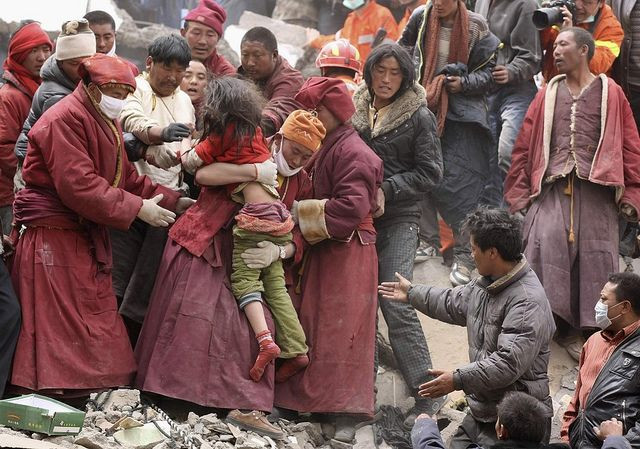'Extreme Altruism' Explained: Yale Psychologists Discover Why Heroes Risk Their Lives To Save Others

On May 19, 2007, a San Francisco lawyer named Kermit Kubitz, then 60, was at a bakery when a man darted into the shop with a seven-inch hunting knife. The man lunged unprovoked at a 14-year-old girl and began stabbing her. Without a moment's hesitation, Kubitz tried to pull the man away but was stabbed multiple times, finally through the ribcage, where the knife stuck, the San Francisco Chronicle reported.
Now, Dr. David Rand, a psychologist at Yale University, says he has discovered what leads ordinary people to do extraordinary things when someone else's life is in danger: An intuitive impulse to act overrides the self-preservation instinct. For Kubitz, he says he realized he might die if he intervened. "I had only two thoughts: one, I have to get him out of the door, and two, oh my God, this guy could kill me too," he told the Chronicle. But those negative emotions didn't dissuade him.
That's because "overwhelmingly, extreme altruists report acting first and thinking later," Rand said in a news release on his findings, published Wednesday in the journal PLOS ONE. They used computer software and the assessments of impartial volunteers to analyze the statements of more than 50 "civilian heroes." Rand and his colleagues discovered that these people's decision to act was hardly a decision at all. It was "intuitive, automatic, and fast," the authors wrote.
In Kubitz's case, when he distracted the attacker, he saved the girl's life. A nearby hospital CEO rushed to stabilize the bleeding victims as another man chased down the fleeing attacker, who was caught by police. Other cases were the same way: After 21-year-old Christine Marty saved a 69-year-old drowning in a flooded car, she said, "I'm thankful I was able to act and not think about it."
But why do people do this? The psychologists aren't exactly sure. It's possible humans have evolved an automatic altruism because of its preservation benefits — a hardwired understanding that if I save someone, others are more likely to save my offspring. But Rand doesn't think so. He says it's not evolved or hardwired, but perhaps just understood. "Intuitive habits of cooperation," as the press release calls it. What Kubitz says seems to suggest the same thing: "If it were my daughter, you’d do it for me. You’d do it in an instant. And I’d do it for you."
Source: Rand D, et al. Risking Your Life without a Second Thought: Intuitive Decision-Making and Extreme Altruism. PLOS ONE. 2014.



























